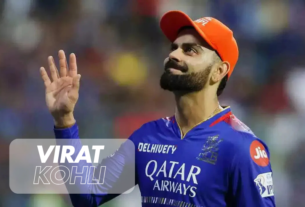Narendra Damodardas Modi, India’s 14th and current Prime Minister, is known for his transformative leadership and global influence. His journey from a humble beginning to the global stage embodies resilience, strategic vision, and the drive to impact millions of lives. Born on September 17, 1950, in the small town of Vadnagar in Gujarat, Modi’s life story is not only inspirational but also reflective of the Indian spirit of perseverance and hard work.
Early Life and Influences
Narendra Modi was born into a modest family as the third of six children. His father, Damodardas Modi, ran a tea stall, where Modi helped out as a young boy. This early exposure to life’s hardships shaped his character, instilling in him a sense of humility and work ethic that would define his future. Education was challenging, but Modi showed an inclination towards spirituality and community service from a young age. He joined the Rashtriya Swayamsevak Sangh (RSS), an Indian socio-political organization, as a young man, finding mentors and ideals that would shape his views on leadership and dedication to India.
Stepping into Indian Politics
In the early 1980s, Modi began his official political career by joining the Bharatiya Janata Party (BJP), where his organizational skills were quickly recognized. Through commitment and strategic prowess, he rose to become a prominent party figure in Gujarat. Modi’s relentless work ethic and ability to connect with people propelled him to more significant responsibilities within the party. His strong stand on national unity, governance, and economic development soon established him as a reliable leader.
Chief Minister of Gujarat: A Period of Transformation
In 2001, Gujarat faced a devastating earthquake that left the state struggling to rebuild. Amid this crisis, Modi was appointed Chief Minister of Gujarat. He quickly set out to revive the state, implementing policies focused on rapid economic growth, industrialization, and infrastructure development. Modi’s leadership style emphasized efficiency, accountability, and a clear vision for progress, which led to a steady transformation of Gujarat.
Under his tenure, the state achieved remarkable industrial growth, turning Gujarat into one of India’s leading economic hubs. Modi introduced policies to attract foreign investment and simplify business regulations, making Gujarat an attractive destination for entrepreneurs and investors alike. His initiatives, such as the Vibrant Gujarat Summit, positioned the state as a global investment hub and boosted employment and infrastructure.
Critics raised concerns about his leadership during communal tensions in 2002, but Modi’s focus on development continued undeterred. Over the years, his success in modernizing Gujarat and improving its economic standing gained him widespread popularity and set the stage for his national leadership.
Journey to National Leadership
By 2014, the Indian populace was eager for change, seeking a leader who could drive India’s economic and social progress on a larger scale. The BJP nominated Modi as their Prime Ministerial candidate, and his campaign focused on economic revival, infrastructure modernization, and a vision of “Sabka Saath, Sabka Vikas” (Together with All, Development for All). Modi’s ability to communicate directly with citizens, combined with his background as a self-made leader, resonated with millions.
The BJP won a sweeping victory, and Modi assumed office as India’s Prime Minister in May 2014. He immediately set to work with a bold and ambitious agenda, aimed at transforming India on multiple fronts—economically, technologically, and socially.
Landmark Initiatives and Policies
As Prime Minister, Modi introduced numerous policies and initiatives that have shaped India’s progress in the 21st century. Some of his landmark projects include:
- Swachh Bharat Abhiyan (Clean India Mission) – Launched in 2014, this mission aimed to eliminate open defecation, improve sanitation, and create a cleaner environment. The campaign mobilized millions of Indians, with Modi himself leading clean-up drives. As a result, sanitation coverage across India increased significantly, bringing about a cultural shift towards cleanliness.
- Digital India – Modi’s push for a digitally empowered society and knowledge economy took shape with the Digital India campaign, launched in 2015. The initiative aimed to expand internet connectivity, bring government services online, and promote digital literacy, particularly in rural areas. Today, Digital India has transformed governance and increased transparency, while supporting a booming digital economy.
- Make in India – Modi launched the Make in India initiative to boost India’s manufacturing sector and attract foreign investments. This campaign invited companies worldwide to set up in India, creating jobs and enhancing skill development. As a result, several global companies have invested in India, bolstering the country’s industrial growth.
- Financial Inclusion through Jan Dhan Yojana – Recognizing the need for inclusive growth, Modi launched Pradhan Mantri Jan Dhan Yojana to promote financial inclusion. This initiative provided millions of previously unbanked Indians with access to banking services, opening millions of bank accounts and facilitating direct benefit transfers that reduced corruption.
- Foreign Relations and Global Diplomacy – Modi’s leadership extended India’s influence on the global stage. His outreach to countries worldwide has strengthened bilateral ties, making India a significant voice in international forums like the United Nations and the G20. Modi has worked on strategic partnerships, focusing on defense, trade, and cultural diplomacy.
Overcoming Challenges and Adapting to Change
Modi’s tenure has not been without challenges. The implementation of the Goods and Services Tax (GST) and the demonetization policy aimed to combat black money and streamline taxation but faced criticism and mixed responses. Additionally, the COVID-19 pandemic posed unprecedented challenges, testing the resilience of the government. Modi’s administration responded with the Aatmanirbhar Bharat (Self-Reliant India) campaign, focusing on local manufacturing and a diversified economy.
Despite these hurdles, Modi’s unwavering focus on economic growth, national unity, and global influence has earned him widespread recognition. He has introduced reforms across sectors including education, healthcare, agriculture, and defense, aiming to position India as a developed nation by the coming decades.
Legacy and Global Influence
Narendra Modi’s journey from a tea seller in Vadnagar to the Prime Minister of the world’s largest democracy is a story of grit, vision, and transformation. His leadership has left an indelible mark on Indian politics and society, inspiring millions with the belief that anyone, regardless of background, can achieve greatness through hard work and dedication.
As he continues to lead India, Modi’s influence is felt both within and beyond the nation’s borders. His story exemplifies the spirit of modern India—an India that aspires to lead, innovate, and influence on a global scale. For many, Modi is not just a leader but a symbol of the possibilities that lie within India’s rich and diverse society.
His success story is a reminder that leadership is about purpose, resilience, and an unwavering commitment to the welfare of the people.





